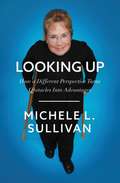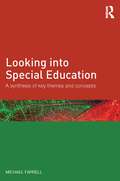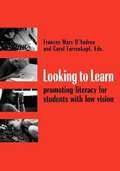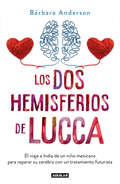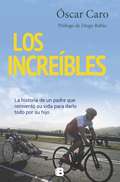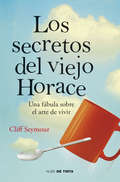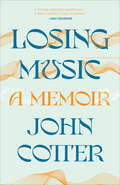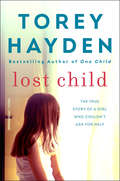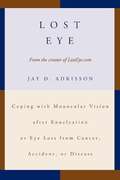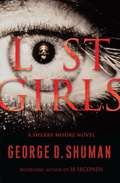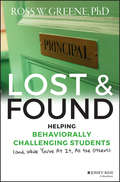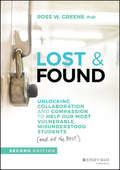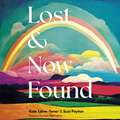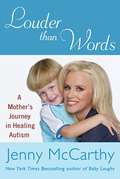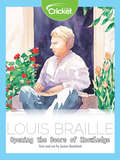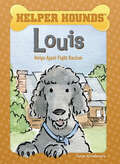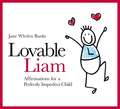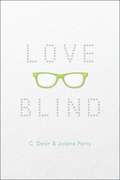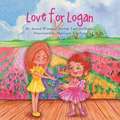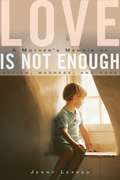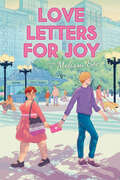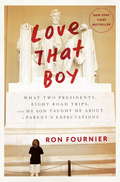- Table View
- List View
Looking Up: How a Different Perspective Turns Obstacles into Advantages
by Michele SullivanWe&’ve all had moments of feeling like we didn&’t belong, but imagine being born into a world where fitting in was never an option. Michele Sullivan, who has a rare form of dwarfism, shares how her physical posture taught her the most effective relational posture with others, which helped her become one of the most powerful women in philanthropy.Born with a rare form of dwarfism, Michele has spent her life looking up. As the first female president of the Caterpillar Foundation, she has used her unique point of view to impact countless lives around the world.As a child, Michele realized she had a choice to make. A life-changing choice.She could tailor her differences into something more suitable for the world.She could hide from the world and live on the fringe.Or, she could embrace her differences, turn them into assets, and come to recognize that there was a strength within them that could help others.She chose the third option.Looking Up is the story of how Michele became the smallest woman at the largest earth-moving manufacturer in the world. Her story begins with her passage from a young person who, in spite of being looked down upon by others, learned to look up: to find an elevated view of others that would change the course of millions of lives.While her height has presented challenges that are different from those most have experienced (containing some uniquely humorous moments as well), it has allowed her to see things, literally and figuratively, that others do not. Embedded in this narrative are unique takeaways for individuals about the importance of making the first move, being wrong at first, choosing intimacy over influence, and learning that asking for help is a strength, not a weakness. Looking Up is poised to be an inspiring nonfiction work full of heartfelt lessons that will resonate with individuals in their lives and at work.
Looking at Employment Through a Lifespan Telescope: Age, Health, and Employment Status of People with Serious Visual Impairment
by Corinne Kirchner Emilie Schmeidler Alexander TodorovThis book gathers representative survey data from the legally blind population on employment issues, and analyzes it using a lifespan perspective (considering age, career stage, and age-at-onset of visual impairment), which is critical to understanding widely different employment issues for subgroups of the blind and visually impaired population.
Looking into Special Education: A synthesis of key themes and concepts
by Michael FarrellContemporary and stimulating, Looking into Special Education provides an engaging overview of the key areas of special education, with each chapter providing valuable insight into the nature and practice of special education today. Aiding understanding and acting as a framework for further study, thought and practice, this innovative new book concerns a wide range of disabilities and disorders and is international in scope. Chapters discuss: The historical dimensions of special education How to engage with the structural frameworks (legal and definitional issues) of special education today The philosophical foundations of special education, including positivism Criticisms of special education and a consideration of future trends The fundamentals of evidence-based practice and how professional judgement is used The benefits of multi-professional collaboration Organisational issues of mainstreaming and special schooling. Including further reading material and ‘concluding thinking points’ at the end of each thought-provoking chapter, Looking into Special Education will be of particular use to professionals and students of special education and related fields looking to enrich their understanding and practice.
Looking to Learn: Promoting Literacy for Students with Low Vision
by Frances Mary D'Andrea Carol FarrenkopfThis handbook provides teachers with practical tips and advice on improving literacy skills for students with low vision with easy-to-understand explanations of vital topics such as interpreting eye reports, performing functional vision assessments, and working with low vision service providers along with chapters on games and activities that teachers can use in their classrooms.
Los dos hemisferios de Lucca
by Bárbara AndersonEl viaje a India de un niño mexicano para reparar su cerebro con un tratamiento futurista. Bárbara Anderson narra con brutal franqueza el día a día de tener un hijo con discapacidad: los retos dentro y fuera de casa, las complicaciones de salud y de vida; los cambios de prioridades; el Everest de cada día al tener un hijo con -hasta ahora- un diagnóstico irreversible como es la parálisis cerebral infantil. La autora detalla cómo emprende un viaje a India con toda su familia para que Lucca sea uno de los primeros niños en someterse a un tratamiento de 28 días, dos ocasiones durante 2017 y otra en 2019, y los asombrosos resultados que vieron en él: una neurogénesis que arranca con el Cytotron, aparato creado por el científico indio Rajah Kumar. Como buen viaje de todo héroe, la historia no termina ahí: Bárbara, a quien no le gusta aceptar un no por respuesta, se embarca en una lucha para lograr impulsar el uso del Cytotron en México. Un vistazo a las posibilidades que se abren desde ahora para pacientes con parálisis cerebral y otras condiciones neurológicas además de otro tipo de enfermedades como el cáncer desde México, el punto más lejano en el mundo a Bangalore. "Un libro estremecedor, hermoso, y últimamente esperanzador. Los dos hemisferios de Lucca es la prueba de que la perseverancia y el empeño siempre tienen su recompensa, y de que el Cytotron marcará un cambio de paradigma para millones de personas a nivel mundial que sufren problemas de salud hasta ahora intratables. Una joya de historia." -Michael Rowe, director de cine.
Los increíbles
by Óscar Caro (FIDEC) Diego RubioLa historia de dos superhéroes de la vida real La vida de Óscar Caro cambió por completo cuando Luis David, su hijo menor, sufrió dos eventos cardiorrespiratorios que le ocasionaron una parálisis cerebral a los seis meses de nacido. Al conocer la historia del Team Hoyt -un equipo en el que un padre corre maratones empujando la silla de ruedas de su hijo-, Luis David le propuso a su papá que persiguieran ese sueño y, así, Óscar decidió convertirse en atleta profesional a los cuarenta años para correr, nadar y pedalear cientos de kilómetros con su hijo al hombro. El Team Caro Wagner, como se hace llamar este equipo de superhéroes de la vida real, ha corrido maratones y triatlones en Colombia y en el exterior, y aunque el esfuerzo de terminar una competencia de estas es monumental, no es nada comparado con el que debe hacer una familia con un miembro en condición de discapacidad. Los Increíbles es el inspirador testimonio de un padre que hace hasta lo imposible por su hijo, y es también una historia que nos demuestra que es posible salir adelante, a pesar de las complicaciones que la vida nos presenta. Al comprar este libro, estás ayudando a los niños de la Fundación FIDEC, Luis David Caro Wagner.
Los secretos del viejo Horace: Una fábula sobre el arte de vivir
by Cliff SeymourUna emotiva novela sobre la amistad, la vida y las segundas oportunidades «Da igual la suerte que tengas, lo importante es lo que haces con lo que te ha tocado vivir.» Scott es un joven sin trabajo que cree haber fracasado en todo. Con la autoestima por los suelos, a sus 27 años ya considera que ha desperdiciado su vida. No tiene una carrera, los trabajos no le duran y su novia le ha pedido espacio. Cuando su tío le consigue un pequeño sueldo por cuidar del viejo Horace, un anciano enigmático y huraño, a Scott le parece simplemente otra desgracia más... Sin embargo todo empieza a cambiar cuando Horace, para asombro de Scott, le pide que jueguen a la Oca; poco a poco irá descubriendo que el anciano utiliza las casillas del tablero para explicarle las claves del arte de vivir y ayudarle reparar los errores que le han conducido al fracaso. Pero comprender las reglas del juego no lo es todo. Ademásde conocer las trampas y peligros, los laberintos y atajos, Scott va a necesitar el valor de avanzar por el tablero de la vida con coraje y sentido de la aventura.
Losing Music: A Memoir
by John Cotter“In his moving memoir, John Cotter anticipates a world without sound . . . a compelling portrait of how deafness isolates people.” —The Washington PostJohn Cotter was thirty years old when he first began to notice a ringing in his ears. Soon the ringing became a roar inside his head. Next came partial deafness, then dizziness and vertigo that rendered him unable to walk, work, sleep, or even communicate. At a stage of life when he expected to be emerging fully into adulthood, teaching and writing books, he found himself “crippled and dependent,” and in search of care.When he is first told that his debilitating condition is likely Ménière’s Disease, but that there is “no reliable test, no reliable treatment, and no consensus on its cause,” Cotter quits teaching, stops writing, and commences upon a series of visits to doctors and treatment centers. What begins as an expedition across the country navigating and battling the limits of the American healthcare system, quickly becomes something else entirely: a journey through hopelessness and adaptation to disability. Along the way, hearing aids become inseparable from his sense of self, as does a growing understanding that the possibilities in his life are narrowing rather than expanding. And with this understanding of his own travails comes reflection on age-old questions around fate, coincidence, and making meaning of inexplicable misfortune.A devastating memoir that sheds urgent, bracingly honest light on both the taboos surrounding disability and the limits of medical science, Losing Music is refreshingly vulnerable and singularly illuminating—a story that will make readers see their own lives anew.
Lost Child: The True Story of a Girl Who Couldn't Ask for Help
by Torey HaydenThe first new book from beloved therapist and writer Torey Hayden in almost fifteen years—an inspiring, uplifting tale of a troubled child and the remarkable woman who made a difference.In a forgotten corner of Wales, a young girl languishes in a home for troubled children. Abandoned by her parents because of her violent streak, Jessie—at the age of ten—is at risk of becoming just another lost soul in the foster system. Precocious and bold, Jessie is convinced she is possessed by the devil and utterly unprepared for the arrival of therapist Torey Hayden. Armed with patience, compassion, and unconditional love, Hayden begins working with Jessie once a week. But when Jessie makes a stunning accusation against one of Hayden’s colleagues – a man Hayden implicitly trusts – Hayden’s work doubles: now she must not only get to the root of Jessie’s troubles, but also find out if what the girl alleges is true.A moving, compelling, and inspiring account, Lost Child is a powerful testament once again of Torey Hayden’s extraordinary ability to reach children who many have given up on—and a reminder of how patience and love can ultimately prevail.
Lost Eye: Coping with Monocular Vision After Enucleation or Eye Loss from Cancer, Accident, or Disease
by Jay D. AdkissonLost Eye is a collection of e-mails and message threads from Jay Adkisson's LostEye.com website, along with articles and other helpful information to help persons who have lost an eye to cope with the experience. The message is that life can continue as normal after the loss of an eye, and that there are many other people who are similarly situated and have successfully coped with the loss of an eye for many years.
Lost Girls: A Sherry Moore Novel
by George D. ShumanIn Lost Girls, bestselling author George D. Shuman's riveting new thriller, beautiful blind psychic Sherry Moore becomes embroiled in her most perilous and disturbing case to date and finds that the lives of hundreds of women hang in the balance. Sherry Moore would do anything for her confidant and best friend, retired Admiral Garland Brigham. So when he suddenly asks her to assist a team of U.S. Navy SEALs in a daring high-altitude rescue on Mount McKinley, she doesn't hesitate and soon finds herself flying across the country to hang vertically off an Alaskan cliff, tethered to Captain Brian Metcalf. Sherry, renowned for her ability to see the last eighteen-seconds of a deceased person's memory, takes the hand of a dead climber, hoping to ascertain the whereabouts of his missing climbing team. But what she sees leaves her with visions that will haunt her long past Alaska. While rumors of slave girls being trafficked around the Caribbean have circulated for years, little credible evidence has been uncovered about these "lost girls." When detective inspector Roily King George recovers the body of a young blond woman, naked except for a shocking tattoo branded onto her cheek, he knows she may hold the key to toppling this criminal underworld. Through delicate back-channel negotiations, Sherry arrives in Kingston, Jamaica, to see the deceased and finds that things are more complicated than she thought: the remains are of Jill Bishop, an American teenager last seen in a Santo Domingo marketplace. Carol Bishop, relentless in her pursuit to.find out how her daughter died, and Sherry, the distressing images from Mount McKinley still fresh in her memory, embark on a frantic hunt for clues from the Dominican Republic to the remote jungles of Haiti, racing against time to save others from Jill's fate. Along the way, Sherry must confront a legendary voodoo priest, who possesses abilities eerily similar to her own, and take on a man whose depraved practices give new meaning to the word evil.
Lost and Found: Helping Behaviorally Challenging Students (and, While You're At It, All the Others)
by Ross W. GreeneImplement a more constructive approach to difficult students Lost and Found is a follow-up to Dr. Ross Greene's landmark works, The Explosive Child and Lost at School, providing educators with highly practical, explicit guidance on implementing his Collaborative & Proactive Solutions (CPS) Problem Solving model with behaviorally-challenging students. While the first two books described Dr. Greene's positive, constructive approach and described implementation on a macro level, this useful guide provides the details of hands-on CPS implementation by those who interact with these children every day. Readers will learn how to incorporate students' input in understanding the factors making it difficult for them to meet expectations and in generating mutually satisfactory solutions. Specific strategies, sample dialogues, and time-tested advice help educators implement these techniques immediately. The groundbreaking CPS approach has been a revelation for parents and educators of behaviorally-challenging children. This book gives educators the concrete guidance they need to immediately begin working more effectively with these students. Implement CPS one-on-one or with an entire class Work collaboratively with students to solve problems Study sample dialogues of CPS in action Change the way difficult students are treated The discipline systems used in K-12 schools are obsolete, and aren't working for the kids to whom they're most often applied - those with behavioral challenges. Lost and Found provides a roadmap to a different paradigm, helping educators radically transform the way they go about helping their most challenging students.
Lost and Found: Unlocking Collaboration and Compassion to Help Our Most Vulnerable, Misunderstood Students (and All the Rest) (J-B Ed: Reach and Teach)
by Ross W. GreeneHelp the students with concerning behaviors without detentions, suspensions, expulsions, paddling, restraint, and seclusion In the newly revised Second Edition of Lost and Found, distinguished child psychologist Dr. Ross W. Greene delivers an insightful and effective framework for educators struggling with students with concerning behaviors. The author’s Collaborative & Proactive Solutions (CPS) approach focuses on the problems that are causing concerning behaviors and helps school staff partner with students to solve those problems rather than simply modifying the behavior. In this book, you’ll discover: A more compassionate, practical, effective approach to students’ concerning behaviors, one that positions educators as allies, not enemies, and as partners, not adversaries Updated examples and dialogue suited to modern classrooms and recent innovations from the constantly evolving CPS model Specific advice on how schools can eliminate the use of punitive, exclusionary disciplinary procedures and address disproportionality Perfect for K-12 educators in general and special education, Lost and Found has also become standard reading for teachers-in-training, professors, and parents who struggle to help students for whom “everything” has already been tried.
Lost and Now Found: A guide to understanding and accepting yourself for late-discovered autistic adults
by Kate Laine-Toner Suzi PaytonWhat happens when you discover that you are autistic later in life? How do you move forward from that point? If you are feeling lost, this is the book for you. Featuring deeply personal stories from the authors and other autistic people in their thirties, forties, fifties and beyond, you will be supported to explore your autistic identity and to learn how to build a 'life hand-picked' for your unique needs.It's time to be happier, healthier, less anxious - and to find the real you.
Louder Than Words: A Mother's Journey into Healing Autism
by Jenny MccarthyThe author relates how she discovered a combination of behavioral therapy, diet and supplements that saved her son Evan from autism.
Louis Braille: Lives of the Physically Challenged Series)
by Jennifer Fisher BryantA biography of Louis Braille which is written for young adult readers. An excellent choice for a book report.
Louis Braille: Opening the Doors of Knowledge
by James RumfordIn the late 1700s, young Louis Braille overcame his disability by inventing "night writing," a system of raised dots to help blind people read. This alphabet of raised dots allowed sightless people to live more independent lives.
Louis Helps Ajani Fight Racism (Helper Hounds)
by Caryn RivadeneiraAjani loves having a dad from Denmark and a mom from Jamaica. Ajani speaks three languages and gets to spend summers with his grandparents in the coolest places. But when a classmate overhears dark-skinned Ajani speaking Danish, the boy makes a hurtful, racist comment. Ajani is crushed. Until a chance encounter with Louis the Helper Hound helps Ajani feel proud of his heritage and helps him and his classmates fight racism.
Lovable Liam: Affirmations for a Perfectly Imperfect Child
by Jane Whelen-BanksLiam is lovable even when he whines and won't eat his dinner. When people are cross with Liam, they still love him. Being cross will only last a minute. Love will last forever! All children require discipline and boundaries. They need to be taught manners, traditions, morality and social conduct. With all these constant lessons and corrections, children can sometimes be left feeling overly criticised or unloved. Lovable Liam takes a moment to honour a child for who he is. It reminds parents to let their child know they are wonderful and precious - deeply valued by friends and family, even when people are cross with them. Vibrant, colourful and lively, this book's positive messages and advice are ideal for young children wanting to understand how relationships work.
Love Blind
by C. Desir Jolene Perry<P>Shy high schooler Kyle Jamieson and Hailey Bosler, a musician with degenerative blindness, team up to tackle a bucket list of greatest fears in this compelling novel that explores what it means to take risks. <P>It starts with a list of fears. Stupid things really. Things that Hailey shouldn't worry about, wouldn't worry about if she didn't wake up every morning with the world a little more blurry. Unable to see her two moms clearly. Unable to read the music for her guitar. One step closer to losing the things she cares about the most. For a while, the only thing that keeps Hailey moving forward is the feeling she gets when she crosses something off the list. Then she meets Kyle. He mumbles--when he talks at all--and listens to music to drown out his thoughts. He's loaded down with fears, too. So Hailey talks him into making his own list. Together, they stumble into an odd friendship, helping each other tackle one after another of their biggest fears. But fate and timing can change everything. And sometimes facing your worst fear makes you realize you had nothing to lose after all.
Love For Logan
by Lori Demonia Monique TurchanLove for Logan is an inspirational story based on actual events. A young girl learns to better understand why day to day life can be challenging for her older sister. While sharing a special night, the story embraces how one girl's love for her sister empowers her to overcome one of life's obstacles.
Love Is Not Enough: A Mother's Memoir of Autism, Madness, and Hope
by Jennifer Hawkins Jenny LexhedWhen Jenny Lexhed and her husband have their first child, Lucas, they are living the dream. They're happily married, they've just bought a house, the company they built together from the ground up is starting to blossom. But with the arrival of their son, a feeling of anxiety slips into their life. What starts as a feeling becomes a conviction. Lucas is not like other children. Everything seems to indicate, and psychiatric evaluation concludes, that their son is severely autistic. Will he ever be able to communicate?Jenny vows to do whatever she can to help Lucas connect with his parents and others and live an independent life. Tossed between hope and despair, she begins a frantic effort to research the best among many competing therapies and find exactly the right treatment for her son. Her obsession takes her to the brink of exhaustion-and over, when she suffers a psychotic breakdown and must be committed to a psychiatric clinic. There begins another journey, to find her balance and recover her strong, healthy life, before she can begin again to fight for her son.Both brutally honest and deeply affecting, Love Is Not Enough is a page-turning memoir that offers insight into autism and what a parent goes through for her child.
Love Letters for Joy
by Melissa SeeA new LGBTQIA+ romance story by the author of You, Me, and Our Heartstrings.Less than a year away from graduation, seventeen-year-old Joy is too busy overachieving to be worried about relationships. She’s determined to be Caldwell Prep’s first disabled valedictorian. And she only has one person to beat, her academic rival Nathaniel.But it’s senior year and everyone seems to be obsessed with pairing up. One of her best friends may be developing feelings for her and the other uses Caldwell’s anonymous love-letter writer to snag the girl of her dreams. Joy starts to wonder if she has missed out on a quintessential high school experience. She is asexual, but that’s no reason she can’t experience first love, right?She writes to Caldwell Cupid to help her sort out these new feelings and, over time, finds herself falling for the mysterious voice behind the letters. But falling in love might mean risking what she wants most, especially when the letter-writer turns out to be the last person she would ever expect.
Love That Boy: What Two Presidents, Eight Road Trips, and My Son Taught Me About a Parent's Expectations
by Ron Fournier<P>Tyler and I inch toward the Green Room, in line with blow-dried TV anchors and stuffy columnists. He's practicing his handshake and hello: <br>"It's a pleasure to meet you, Mr. President. It's a pleasure to meet you, Mr. President. It's a pleasure to meet you, Mr. President." <P>When the couple in front of us steps forward for their picture, my teenager with sky-blue eyes and a soft heart looks up at me and says, <br>"I hope I don't let you down, Dad." <P>What kind of father raises a son to worry about embarrassing his dad? I want to tell Tyler not to worry, that he'd never let me down. That there's nothing wrong with being different. That I actually am proud of what makes him special. But we are next in line to meet the president of the United States in a room filled with fellow strivers, and all I can think about is the real possibility that Tyler might embarrass himself. Or, God forbid, me.<P><P> LOVE THAT BOY is a uniquely personal story about the causes and costs of outsized parental expectations. What we want for our children--popularity, normalcy, achievement, genius--and what they truly need--grit, empathy, character--are explored by National Journal's Ron Fournier, who weaves his extraordinary journey to acceptance around the latest research on childhood development and stories of other loving-but-struggling parents. <P><b>A New York Times Bestseller</b>
Love Works Like This: Moving from One Kind of Life to Another
by Lauren SlaterThe author and psychologist gives us a "travelogue" of her pregnancy while struggling to keep mental illness at bay
